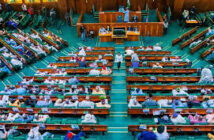
The Emir of Kano, Alhaji Muhammadu Sanusi II, has revealed that the Goodluck Jonathan administration shelved its 2012 plan to completely remove fuel subsidies out of concern that the Boko Haram insurgency could exploit the mass protests that erupted across the country.
Speaking at the Oxford Global Think Tank Leadership Conference, Sanusi — who served as Governor of the Central Bank of Nigeria (CBN) during the period — said the government feared that terrorist groups might target protesters, leading to large-scale casualties.
According to him, the administration initially planned to fully eliminate fuel subsidies but settled for a 50% reduction after assessing the potential security risks.
“The only reason the government compromised and did 50%, not 100%, was Boko Haram,” Sanusi explained. “There were thousands of Nigerians on the streets in Lagos, Kano, and Kaduna. We had suicide bombers in the country. If one of them had attacked those crowds, killing 200 people, it would no longer be about subsidy. So I give President Jonathan credit — he was determined to do it.”
Sanusi criticised Nigeria’s long-standing fuel subsidy regime, describing it as a “naked hedge” — a deeply flawed and unsustainable policy that drained public finances.
“It was not a subsidy; it was a hedge,” he said. “The government promised Nigerians they would not pay more than a fixed amount per litre, regardless of oil prices or exchange rates. When prices rose from $40 to $140 per barrel, the government paid the difference. When the exchange rate doubled, it paid again. We went from using revenue to pay subsidies, to borrowing money to pay subsidies, and then borrowing money to pay interest on those loans.”
The Emir argued that if Nigerians had supported the Jonathan administration’s reform efforts in 2011–2012, the country could have avoided today’s deeper economic hardship.
“If Nigerians had allowed it, inflation would have moved from 11% to 13%. That small pain then would have saved us from the current crisis,” he said.
Sanusi also used the platform to deliver a sharp rebuke of Nigeria’s political leadership, lamenting what he described as a “classless society” where education and integrity fail to translate into effective governance.
“If you take 109 Nigerians at random and put them in the Senate chambers, the results may not be different,” he said. “We have highly educated people in government who behave like illiterates. They forget their education once in power.”
He decried the culture of praise-singing and corruption among public officials, questioning why many leaders pursue personal gain instead of public service.
“Why would a man who is educated and accomplished become a praise singer? By the time you become a governor, you should be beyond looking for money,” he said. “You have the opportunity to impact millions of lives — to build schools, provide healthcare, and save lives — yet some leaders are only thinking about houses and wealth. Are you that cheap?”
Sanusi’s remarks revisited one of Nigeria’s most turbulent economic moments — the 2012 Occupy Nigeria protests, which forced the Jonathan government to roll back its attempt to fully remove fuel subsidies after nationwide demonstrations paralysed the country.


